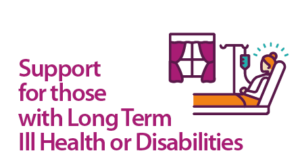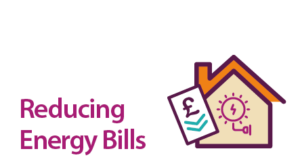Rent arrears and late payments
6 min read
There are many reasons why your tenants may struggle to pay their rent. Getting the right support early can help resolve issues and prevent eviction.
Below are common reasons for missed payments, along with advice on where to get help.
On this page:
- Helping tenants with financial difficulties
- Helping tenants who have lost their job
- Helping tenants with health conditions
- Helping tenants with energy bills
Financial difficulties
“My tenant has rent arrears. They have been a really good tenant, but I need to pay my mortgage. What can we do?”
If your tenant is struggling to pay rent, support is available to help both you and them.
Our Money Matters section offers practical advice and solutions to help tenants with their finances. It includes guidance on:
- Increasing income
- Organising outgoings
- Accessing financial support, including help for those at risk of homelessness
If a tenant has rent arrears, Reading Borough Council’s Rent Guarantee Scheme may be able to help. The scheme offers security for both landlords and tenants by:
- Paying rent directly to landlords, in advance
- Covering a six-week deposit
- Providing financial support during vacant periods
- Offering advice and assistance throughout the tenancy
If your rent and mortgage payment dates do not align or your tenant has missed payments, your mortgage provider may be able to:
- Change the payment date
- Offer a temporary reduced or deferred payment
However, there may be amendment fees, and interest may still be charged during any deferral period. Missed payments may also affect future mortgage payments. We recommend seeking independent
Job loss
“My tenant has lost their job. How are they going to cover the rent?”
If your tenant has lost their job, they may be eligible for financial support to help cover their rent and living costs.
If the tenant is of working age, they should apply for Universal Credit (UC) as soon as possible. UC can help with:
- Rent payments – UC can cover rent up to the Local Housing Allowance (LHA)
- Living costs – A Personal Allowance helps with food and bills
To apply tenants will need to provide proof of tenancy, and landlords must verify housing costs.
Landlords can request UC housing payments to be made directly to them, but this is only possible if the tenant is in serious rent arrears.
Tenants should also apply for:
- Council Tax Support – to reduce council tax costs
- Discretionary Housing Payment (DHP) – if the LHA does not cover their full rent, DHP may help with the shortfall for a limited time
- Free school meals – if they have school-age children, they may be eligible for few meals to reduce financial pressure
A UC Work Coach will be assigned to help the tenant find new employment.
Tenants of pension age will need to apply for Housing Benefit and Council Tax Support. Assistance completing the applications can be sought by various local organisations, which include Communicare, Age UK and Citizens Advice Bureau.
Long term ill health and disability

“My tenant has a new long term/chronic health condition and cannot work. They have now fallen behind their rent. What help is available?”
If your tenant has developed a long-term or chronic health condition and can no longer work, there is financial and legal support available. Your tenant should apply for Universal Credit to help with both rent and living costs, even if they are receiving Statutory Sick Pay (see Job Loss above for more detailed information).
They may also be eligible for additional benefits:
- Personal Independence Payment (PIP) – to help with extra living and travel expenses
- Attendance Allowance- if they need support with personal care
- Carer’s Allowance – if they have a carer who meets the eligibility criteria
Where practical, employers must make reasonable adjustments to help employees stay in work. This may include:
- Reduced hours of work
- Specialist computer or mobility aids
- Redeployment to a more suitable role
If your tenant believes they have been unfairly treated or dismissed due to their health condition they can contact ACAS for advice.
Under section 20 Equality Act 2010 (EA 2010), landlords, estate agents, and management companies must make reasonable adjustments to ensure tenants with disabilities are not at a disadvantage.
Once a landlord is aware of a tenant’s disability they must:
- Adjust policies or tenancy agreements – for example, allowing an assistance dog even if pets are usually not permitted
- Provide information in accessible formats – such as easy-read documents or Braille versions of tenancy agreements
However, landlords are not required to make structural changes that would permanently alter the property. This includes:
- Removing walls or widening doorways
- Installing permanent ramps
- Modifying any physical feature of the building
Energy bills

“My tenant states their energy bill is far too high, and they are struggling to keep on top of their rent and overheads. What help is available?”
Your tenant may be eligible for support through our Winter Watch scheme, which helps vulnerable people stay safe and warm during cold weather.. Any household within the borough – whether in private, social or housing association accommodation can request a referral.
In addition to this scheme, tenants on low income may qualify for the Warm Homes Discount through their energy provider. If the temperatures drop to zero degrees for seven consecutive days, they will automatically receive a Cold Weather Payment via their benefits.
Encouraging your tenant to compare energy tariffs or switch to a fixed tariff could help them manage costs more effectively. With your permission, they may also be able to apply for the Great British Insulation Scheme, which offers free or discounted cavity wall and loft insulation to improve energy efficiency. Small changes, such as only filling the kettle with the amount of water needed, can also reduce energy consumption – see our further hints and tips on saving energy page for more advice.
If your tenant was born on or before 23rd September 1958, they may be able to apply for a Winter Fuel Payment – an annual one-off payment to help with heating costs. they can apply if they receive either of the following benefits:
- Pension Credit
- Universal Credit
- Income Support
- Income-based Jobseeker’s Allowance
- Income-related Employment and Support Allowance
- Child and/or Working Tax Credit